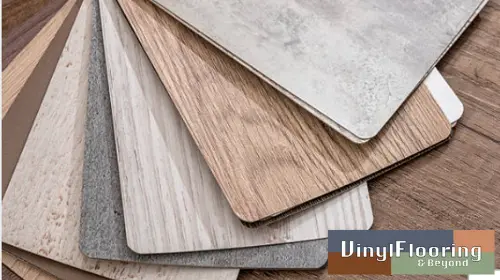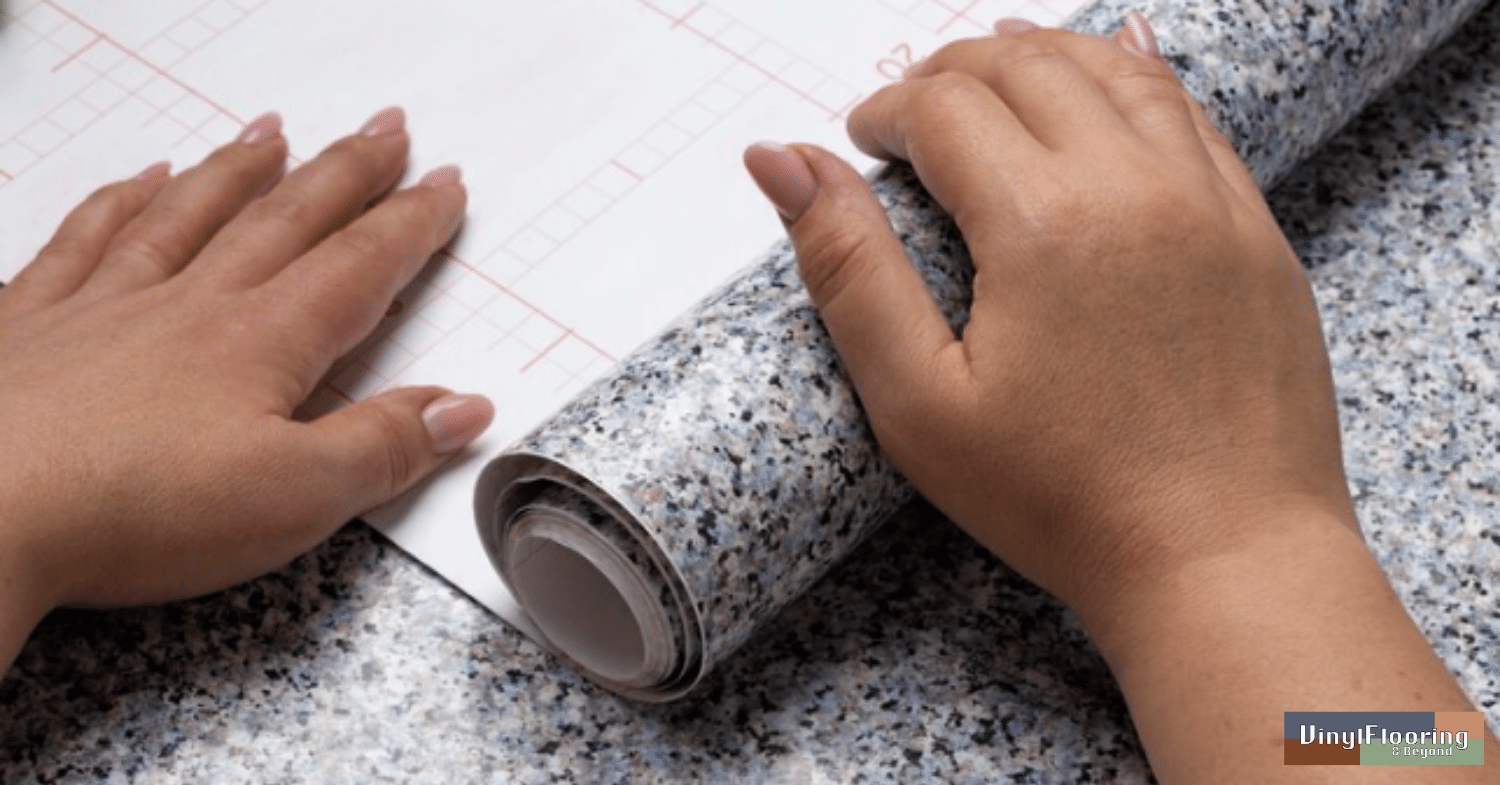At Vinyl Flooring & Beyond, we specialize in the installation and repair of vinyl flooring. Our experienced team will help you create a stylish space with an easy to maintain floor that’s built to last. We have years of experience in installing and repairing vinyl flooring for both residential and commercial customers.
When it comes to vinyl flooring installation, our experts go the extra mile. We take the time to inspect your subfloor, measure correctly for an optimal fit, and ensure that all seams are properly sealed. And if you choose us for vinyl flooring repair services, we will use professional grade products that won’t damage or compromise the integrity of your floor.
We’re passionate about providing quality solutions to meet your flooring needs. Whether you’re looking for a complete installation or repair, our team is ready to work with you every step of the way to ensure that your vinyl flooring looks great and stands the test of time. Contact us today and let’s get started!
Vinyl Flooring: Why Is It a Popular Choice for Homes & Businesses?
Vinyl flooring is a popular and adaptable option with many benefits for both homes and businesses. Polyvinyl chloride (PVC) flooring is synthetic and can be designed to seem like other types of flooring, such as hardwood, tile, or stone.
One of the key benefits of vinyl flooring is its exceptional durability. It is resistant to scratches, stains, and moisture, making it suitable for high-traffic areas such as kitchens, bathrooms, and hallways. Vinyl flooring is also comfortable underfoot, providing a cushioned surface that reduces fatigue and noise transmission.
Regarding design options, vinyl flooring offers various styles, patterns, and colors to suit multiple interior aesthetics. It can emulate the natural beauty of wood or the elegance of ceramic tiles, allowing for endless possibilities in creating the desired look.
Maintenance is relatively easy with vinyl flooring. Regular sweeping or vacuuming and occasional damp mopping are usually sufficient to keep it clean and looking its best. Furthermore, vinyl flooring is often more affordable than materials like hardwood or stone, offering a cost-effective solution without compromising quality or visual appeal.
The quality of vinyl flooring varies greatly, though. Longevity and durability are improved with higher-quality vinyl with thicker wear layers. Furthermore, certain vinyl items are produced using eco-friendly processes, lowering their environmental impact.
Tile flooring is an excellent choice for commercial spaces.
Advantage & Disadvantages
Advantages of Vinyl Flooring
- Durability: Vinyl flooring is highly durable and resistant to wear, stains, scratches, and moisture. It is suitable for high-traffic areas and can withstand the demands of busy households.
- Variety of Styles: Vinyl flooring comes in a wide range of styles, designs, and colors, including options that mimic the appearance of natural materials like wood or stone. This allows for versatile design choices to suit different aesthetics.
- Easy Maintenance: Vinyl flooring is relatively low-maintenance. It is easy to clean with regular sweeping and occasional mopping. It does not require sealing or waxing like some other flooring options.
- Affordability: Vinyl flooring is often more affordable than hardwood or tile materials. It provides a cost-effective alternative without compromising on durability or aesthetics.
Disadvantages of Vinyl Flooring
- Susceptible to Damage from Sharp Objects: Although vinyl flooring is durable, it can be prone to damage from sharp objects, such as heavy furniture or dropped knives. Sharp objects can cause cuts or tears on the surface of the vinyl.
- Limited Repair Options: If vinyl flooring is damaged, repairing it may not be as straightforward as other flooring types. In many cases, damaged sections may need to be replaced entirely.
- Environmental Concerns: Vinyl flooring is made from PVC (polyvinyl chloride), which raises environmental concerns due to the production process and the potential release of volatile organic compounds (VOCs) during installation. However, there are more eco-friendly vinyl options available.
- Vulnerability to Extreme Temperatures: Vinyl flooring can be sensitive to extreme temperatures. If improperly installed or maintained, it may expand or contract with temperature fluctuations, leading to issues like warping or buckling.
It’s worth noting that the specific advantages and disadvantages of vinyl flooring may vary depending on the quality, thickness, and installation method of the vinyl product.
Laminate Vs. Vinyl Flooring: Choosing the Right Option
Both laminate and vinyl flooring are popular choices for homeowners and business owners alike. Each type of flooring has its unique features, advantages, and disadvantages. Let’s take a closer look at how they stack up against each other:
Vinyl Flooring
Vinyl flooring is made of synthetic materials, primarily PVC (polyvinyl chloride).It comes in a wide range of designs, including wood, stone, and tile patterns, offering versatile options for various interior styles.
Vinyl is exceptionally water-resistant, making it suitable for bathrooms, kitchens, and other high-moisture areas. It offers a softer and more comfortable feel underfoot compared to laminate.
Vinyl flooring is generally more budget-friendly than laminate.
The installation process for vinyl is relatively simple and can be done using adhesive, interlocking planks, or loose lay methods.
Laminate Flooring
Laminate flooring is composed of multiple layers, including a high-density fiberboard (HDF) core and a printed design layer that mimics wood or stone.
It also comes in various designs, often replicating the appearance of natural hardwood or stone.
While it has decent water resistance, it is not as waterproof as vinyl, making it less suitable for wet areas. Laminate can be a bit noisier underfoot compared to vinyl.
In terms of cost, laminate is generally mid-range but can vary based on the quality of materials.
The installation process often involves a click-lock system that makes it DIY-friendly for many homeowners.
Ultimately, choosing between vinyl and laminate comes down to your specific needs, budget, and preferences. If water resistance, budget-friendliness, and comfort are top priorities, vinyl flooring might be the ideal option for you.
Maintenance: Easy Care for Lasting Beauty
One of the significant advantages of vinyl flooring is its minimal maintenance requirements, which contribute to its long-lasting beauty. To keep your vinyl floor looking its best, follow these simple maintenance tips:
- Regular sweeping or vacuuming helps remove dirt and debris that can scratch the surface over time.
- Wipe up spills immediately with a damp cloth to prevent stains.
- For a more thorough cleaning, use a mild detergent mixed with water. Avoid using abrasive cleaners that may damage the surface.
- Place doormats at entryways to trap dirt and moisture from shoes, reducing the risk of scratches and water damage.
Compared to some other flooring options, vinyl’s low maintenance needs make it an excellent choice for busy households or high-traffic commercial spaces.
Installation: Getting Your Vinyl Floor in Place
Vinyl flooring offers various installation methods, making it a versatile choice for different settings. While some DIY enthusiasts may opt for self-installation, it’s essential to ensure proper installation to maximize the floor’s longevity. Here are the common vinyl flooring installation methods:
Adhesive Installation
This method involves using adhesive to secure the vinyl sheets or tiles to a prepared subfloor.
It provides a solid bond, making the floor resistant to movement and reducing the risk of moisture seepage.
Interlocking Planks/Tiles
Vinyl planks or tiles with interlocking edges are designed to fit together easily, creating a “floating floor” without the need for adhesive.
This method is popular among DIYers as it requires less expertise and tools.
Loose Lay
This installation method involves laying down large vinyl sheets without adhesive or locking mechanisms.
The sheets are heavy enough to stay in place, but this method may not be suitable for areas with heavy foot traffic.
To ensure a successful installation, it’s recommended to follow the manufacturer’s guidelines and, when in doubt, seek professional help.
Repair: Addressing Issues with Vinyl Flooring
Despite its excellent durability, vinyl flooring can occasionally encounter problems that may require repair. Common issues include scratches, tears, and water damage. Here’s how to address some of these concerns:
- Scratches
For minor scratches, use a vinyl floor repair kit to fill and conceal the damaged area. For deeper scratches or gouges, consider replacing the affected plank or tile with a new one.
- Tears
Small tears can be repaired using a vinyl patch kit, which includes adhesive and patches of vinyl material. For larger tears or extensive damage, replacing the damaged section may be the best solution.
- Water Damage
Promptly addressing water spills and leaks can prevent significant damage to vinyl flooring. If water damage occurs, identify the source of the water and address it to prevent further issues.
In cases of severe water damage, you may need to replace the affected sections or the entire floor.
Durability: A Floor Built to Last
Vinyl flooring is renowned for its exceptional durability, making it an excellent long-term investment. It can withstand heavy foot traffic, resist stains, and endure wear and tear from everyday activities. Furthermore, its water-resistant properties make it particularly suitable for spaces prone to moisture exposure.
With proper maintenance and care, vinyl flooring can maintain its beauty and functionality for many years, making it a reliable choice for both residential and commercial applications.
In conclusion, vinyl flooring stands out as a cost-effective, low-maintenance, and durable option for enhancing the aesthetics and functionality of any space. Whether you choose vinyl over laminate or other flooring materials, its versatility and practicality make it a top choice for modern interiors. Remember to consider your specific needs, lifestyle, and budget when making your flooring decision.
Need Vinyl Flooring Installation & Repair? Call Us for Expert Help!
Are you looking for a reliable service to help with installing or repairing your vinyl flooring? At Vinyl Flooring & Beyond, we have all the right tools and expertise to get the job done quickly and professionally. Our team of experienced installers is ready to help you transform any space with durable, long-lasting vinyl flooring.
We offer both residential and commercial vinyl flooring services and can help you create the perfect floor for your needs. We specialize in installation, repair, and maintenance of all types of vinyl flooring including sheet, plank, tile, luxury vinyl tile (LVT), and luxury vinyl plank (LVP).
Call us today for your vinyl flooring project!




